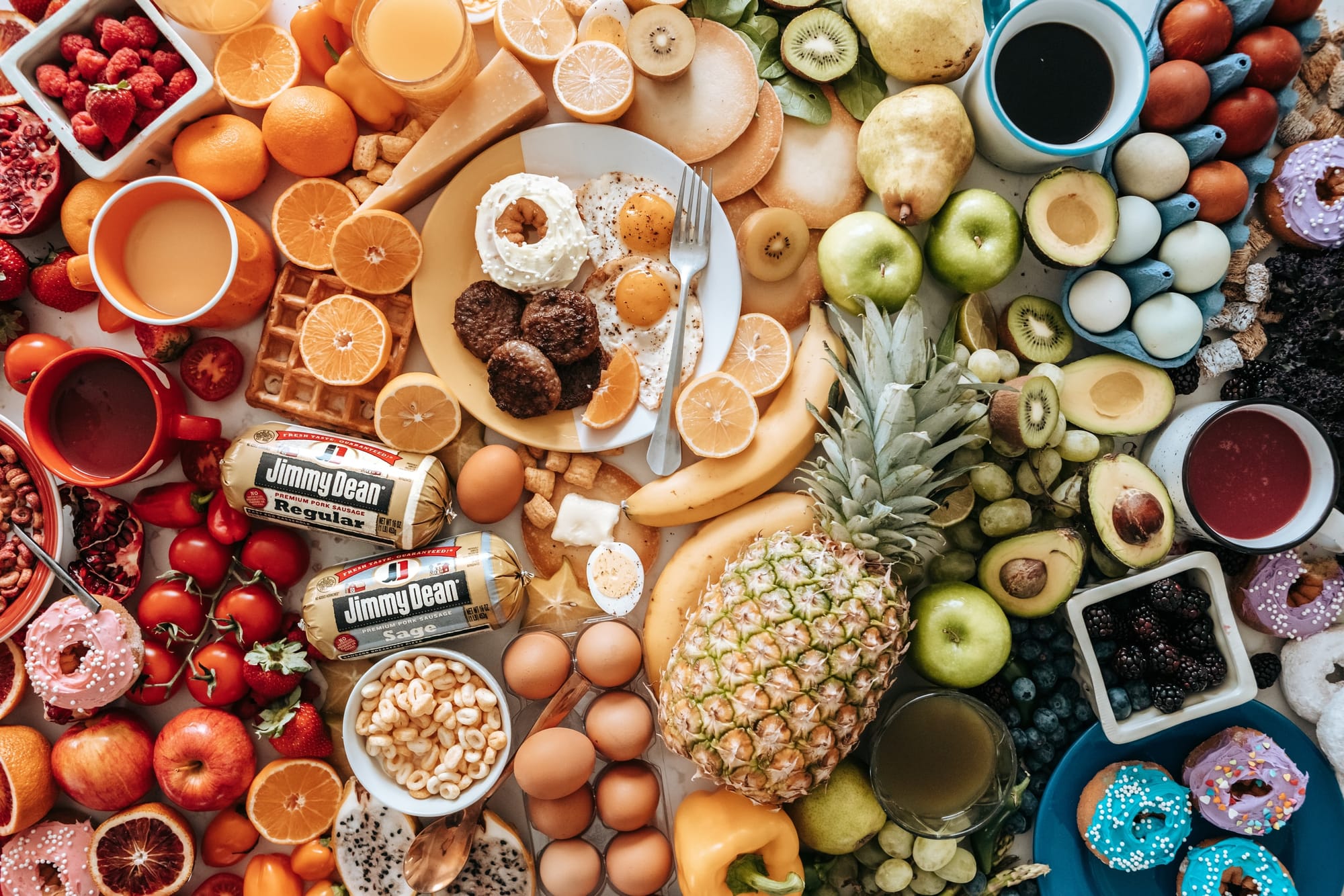Daily Diet For Super Healthy Foods

Maintaining a healthy and balanced diet is crucial for overall well-being. Here's a guide to a daily diet that incorporates super healthy foods:
Breakfast:
- Overnight Oats:
- Combine oats with chia seeds, almond milk, and a variety of fruits. Top with nuts for added crunch and protein.
- Greek Yogurt Parfait:
- Layer Greek yogurt with fresh berries, granola, and a drizzle of honey.
- Smoothie Bowl:
- Blend spinach, banana, berries, and almond milk. Top with sliced fruits, seeds, and a dollop of Greek yogurt.
Mid-Morning Snack:
- Mixed Nuts:
- A handful of mixed nuts like almonds, walnuts, and pistachios for a dose of healthy fats.
- Fresh Fruit:
- Choose a piece of seasonal fruit for a natural energy boost.
Lunch:
- Quinoa Salad:
- Mix quinoa with a variety of colorful vegetables, chickpeas, and a light vinaigrette dressing.
- Grilled Chicken Wrap:
- Whole-grain wrap filled with grilled chicken, leafy greens, tomatoes, and hummus.
Afternoon Snack:
- Vegetable Sticks with Hummus:
- Snack on colorful vegetable sticks (carrots, bell peppers, cucumber) with a side of hummus.
- Chia Pudding:
- Combine chia seeds with almond milk and let it set. Top with berries and a drizzle of maple syrup.
Dinner:
- Baked Salmon:
- Baked salmon seasoned with herbs, accompanied by roasted sweet potatoes and steamed broccoli.
- Vegetarian Stir-Fry:
- Stir-fry tofu or tempeh with a mix of colorful vegetables and quinoa.
Evening Snack:
- Greek Yogurt with Berries:
- Another serving of Greek yogurt with a handful of fresh berries.
- Dark Chocolate and Almonds:
- A small piece of dark chocolate paired with almonds for a satisfying and indulgent treat.
Hydration Throughout the Day:
- Water:
- Aim to drink at least 8 glasses of water throughout the day to stay hydrated.
- Herbal Tea:
- Enjoy a cup of herbal tea like chamomile or green tea for added antioxidants.
Daily Tips:
- Portion Control:
- Be mindful of portion sizes to avoid overeating.
- Colorful Plate:
- Include a variety of colorful fruits and vegetables to ensure a range of nutrients.
- Whole Grains:
- Opt for whole grains like brown rice, quinoa, and whole-grain bread for fiber and sustained energy.
- Lean Proteins:
- Incorporate lean protein sources like fish, chicken, tofu, and legumes.
- Healthy Fats:
- Include sources of healthy fats such as avocados, nuts, and olive oil.
- Limit Processed Foods:
- Minimize the intake of processed and sugary foods.
Remember, individual nutritional needs vary, and it's essential to consult with a healthcare professional or a registered dietitian to create a personalized and sustainable meal plan based on your specific requirements and health goals.


